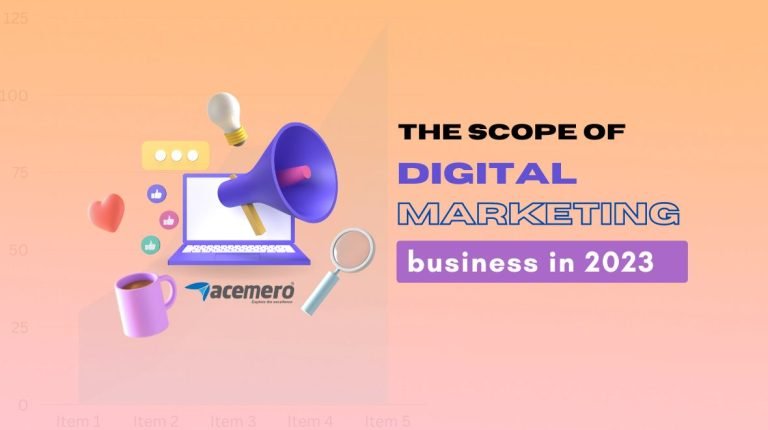
A scheme to encourage and finance upcoming female entrepreneurs is a scheme by the Central Bank of India. The Cent Kalyani Scheme offers a chance for female entrepreneurs to come up with small and medium-scale businesses or modernize their existing businesses and nuance their setups as per the requirements of the modern-day business world. This could also be used to expand the current business by increasing employees, furthering the manufacturing or service processes, and emerging even more successful as a business owner.
The scheme is easy to apply and available from any branch of the Central Bank of India if you have an account.
Cent Kalyani Scheme, Objectives
Table of Contents
The essential purpose of the Cent Kalyani Scheme is to bring out the best in the industry led by female entrepreneurs engaged in small and medium-scale or cottage industries. This is in accordance with the MSME Act, as enacted by the Government of India in 2006. The scheme is primarily directed at women employed in the manufacturing and the service-oriented home-based and small-scale industry.
For a female entrepreneur who is willing to open or has already set up her own business, this is a perfect scheme to establish their footing in their particular industry.
Also Read: What Is Sfurti Scheme, & Its Role In The Revival of Traditional Art of India?
The targeted sectors
The sectors that are primarily being targeted by this scheme are both the manufacturing and service industries, enlisted as follows,
- Manufacturing
- Handlooms
- Food processing
- Textile industry
- Arts and crafts
- Cottage industry
- Home-based manufacturing industries
- Service
- Doctors
- Lawyers
- Engineers
- Dieticians
- Fashion designers
- Health and beauty clinics
- Beauticians; such as hair stylists, beauty parlour owners and bridal make-over industries
- Tailoring and boutique owners
- Transport operators
- Small businesses such as lunch-makers, snack shops, canteens and mobile restaurants
- Typing, photocopy shops, STD/ISD PCOs
- Libraries
- Daycare creches for children
Also Read: MSME Schemes For Empowering Women Entrepreneurs
Exclusions of the scheme
Although it covers many sectors of the MSME businesses run by women, there are a few exclusions who are not eligible for this scheme. These include the following;
- Individuals involved in the retail businesses, such as shopkeepers and grocery store owners
- Education and training institutes, whether self-financed or fund aided by other agencies
- Self-help groups that are subsidized under several other government schemes
The purpose of the scheme
The primary of the scheme is to help set up or expand a business in the MSME sector by means of a two-fold system:
- Capital expenditure: The capital expenditure includes the procurement of one-time investment materials such as machinery, equipment, and plant setups.
- Running expenditure: These include day expenditure materials such as consumables, electricity, water, and any other costs incurred during day-to-day business.
Nature of the facilities provided
The scheme offers a term loan fund-based working capital facility to thriving individuals and newcomers to the industry. These are in the forms of;
- Overdraft loans
- Letters of credit
- Cash credit
- Non-fund-based working capital
- Letter of guarantee
Also Read: Top Facts About PMRY Loan
Loan amount and Margin
The scheme offers a maximum loan of 100 lacs, that is 1 crore INR. This is with a margin of 20% in the business. The minimum amount is 1 lacs, and concession rates of interest are offered up to 10 lacs. This means that for a loan amount of 1 lac, the borrower must finance 20,000 INR out of their own pockets.
Cent Kalyani Scheme Loan Rates of interest
The rate of interest varies upon the principal amount borrowed. The loan interest amount has various concession rates of different slabs of the borrowing amount.
- Upto 10 lacs: MCLR + 0.25%
- 10 lacs to 100 lacs: MCLR + 0.50%
- If rated by an external agency: An additional 0.25% is charged on MCLR + 0.25% or 0.50% depending upon the borrowing principal
Collaterals and Security
There are several benefits and perks as per the MSME Act, 2006, depending upon the type and amount of money borrowed. The securities and collaterals are as follows;
- Primary collaterals:
- Charges on stock
- Receivables
- Plant, Machinery, and Equipment
- Unencumbered assets that have been acquired
- Collateral security:
- The Cent Kalyani scheme is covered by CGTMSE (Credit Guarantee Scheme)
- The first-year fees for CGTMSE have to be paid to the bank
Processing fees and Insurance
There are no processing fees for this loan. Additionally, there is comprehensive insurance upon the equipment and machinery, or other plant materials, procured by the entrepreneur that is covered under the bank clauses. Please read the documents carefully before the application is processed.
Also Read: Top Five Government Schemes For Retail Businesses
Key Takeaways From This Scheme
The Cent Kalyani scheme is a welfare scheme that will help upcoming, and existing female entrepreneurs thrive and successfully run their business, with modernizations, as and when required, to upscale their business, improve their client base, and emerge as another success story for the books. The key takeaways of this scheme are:
- Only female entrepreneurs having a pre-existing or willing to set up a business may apply.
- 20% of the funding of the project must be financed by the entrepreneur or the investor
- The primary collaterals are on the plant setups, stocks, equipment, and other assets procured.
- There are no third-party guarantees needed as the CGTMSE scheme covers it.
- The fees for the first year of the CGTMSE scheme have to be paid directly to the bank when taking the loan.
- There are no processing fees for the loan
- The minimum amount is 1 lac
- The interest rate up to 10 lacs is MCLR + 0.25%
- The interest rate above 10 lacs is MCLR + 0.50%
- If an external agency rates the account, there is an additional 0.25% charge on the interest amount.
- The bank clause ensures the seed assets of the business, such as materials, equipment, plant setups, pieces of machinery, and any other assets that have been procured for the business.
- The scheme covers both capital investments as well as day-to-day running costs.
- Retailers, education and training institutes, and self-help groups with state or central government scheme subsidies are not eligible to apply.
- Both business owners and female professionals in the services industry are eligible to apply for the loan.
The Cent Kalyani Scheme is truly a marvel of a scheme that the central bank of India has put up to help potential entrepreneurs. However, we advise you to read the documents carefully before applying for such a loan.
FAQs
What is the aim of the Cent Kalyani Scheme?
The cent Kalyani scheme aims to generate sustainable employment opportunities for women entrepreneurs in the manufacturing and service sectors.
What documents do I need to apply for the Cent Kalyani Scheme?
The documents needed to apply for the Cent Kalyani scheme are KYC documents such as PAN, AADHAR, and other government photo ID Balance Sheets, profit and loss accounts, and other financial documents relevant to the business. The letters of interest, understanding, continuity, and hypothecation.
What is the loan limit for the Cent Kalyani Scheme?
The maximum loan borrowed under the Cent Kalyani Scheme is 100 lacs or 1 crore INR.







